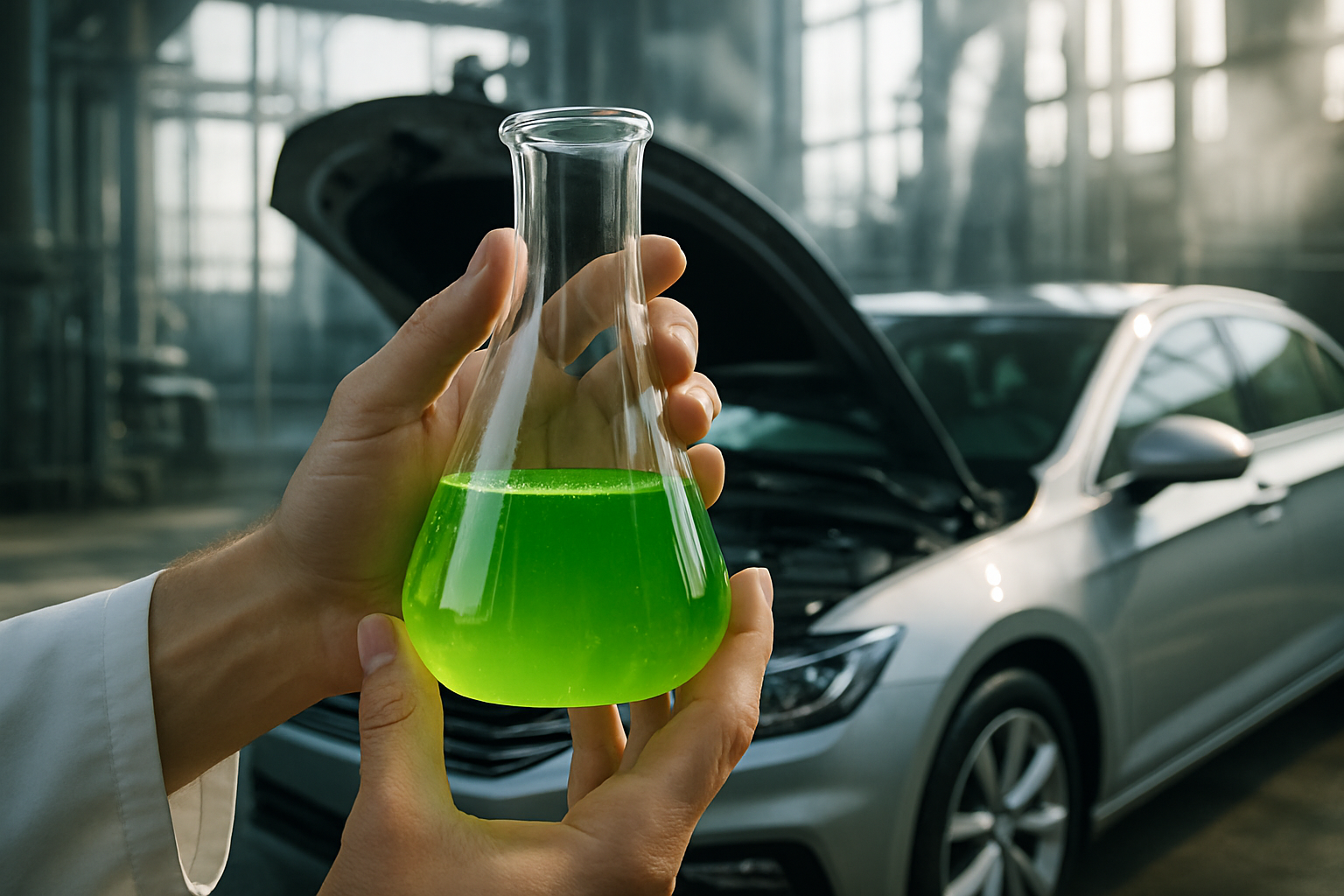Synthetic Fuels: The Overlooked Game-Changer in Automotive Sustainability
In a world fixated on electric vehicles, a quiet revolution is brewing in the realm of liquid fuels. Synthetic fuels, often overshadowed by their flashier electric counterparts, are emerging as a potent solution to reduce carbon emissions while preserving the essence of internal combustion engines. This technological marvel promises to breathe new life into existing vehicle fleets, offering a bridge between tradition and innovation in the automotive landscape.

The Chemistry Behind Synthetic Fuels
Synthetic fuels, also known as e-fuels or power-to-liquid fuels, are created through a complex process that mimics nature’s carbon cycle. The production begins with the extraction of carbon dioxide from the atmosphere or industrial processes. This captured CO2 is then combined with hydrogen, typically produced through water electrolysis powered by renewable energy sources. The resulting mixture undergoes a Fischer-Tropsch process, transforming it into a liquid hydrocarbon fuel that’s chemically identical to conventional fossil fuels.
The beauty of this process lies in its carbon neutrality. When burned in an engine, synthetic fuels release the same amount of CO2 that was captured during their production, creating a closed loop that doesn’t add new carbon to the atmosphere. This characteristic sets synthetic fuels apart from their fossil-derived counterparts, offering a path to significantly reduce the carbon footprint of the transportation sector.
A Lifeline for Classic and Performance Cars
For automotive enthusiasts and collectors, synthetic fuels represent more than just an environmental solution – they’re a lifeline for cherished vehicles. Classic cars, with their irreplaceable cultural and historical value, face an uncertain future in a world moving towards electrification. Synthetic fuels offer a way to preserve these rolling pieces of art without compromising their authenticity or driving experience.
Performance cars, too, stand to benefit enormously from synthetic fuels. The high energy density and compatibility with existing engine technology mean that the thrill of high-revving engines and the visceral connection between driver and machine can be maintained while drastically reducing environmental impact. This preservation of automotive heritage and performance is a crucial aspect often overlooked in discussions about sustainable mobility.
Overcoming Production Challenges
Despite their promise, synthetic fuels face significant hurdles in scaling up production to meet global demand. The energy-intensive nature of the production process currently results in high costs, making synthetic fuels less economically competitive compared to conventional fuels or electric powertrains. However, as renewable energy becomes more abundant and production technologies improve, the cost curve is expected to decline rapidly.
Efficiency is another area of focus for researchers and engineers. Current production methods for synthetic fuels can result in energy losses of up to 70% during the conversion process. Innovations in catalysts, reactor designs, and process integration are actively being pursued to improve overall efficiency and reduce production costs.
Integration with Existing Infrastructure
One of the most compelling arguments for synthetic fuels is their compatibility with existing infrastructure. Unlike the widespread changes required for a shift to electric vehicles, synthetic fuels can be distributed through current fuel networks and used in unmodified internal combustion engines. This seamless integration could allow for a more gradual and less disruptive transition to low-carbon mobility, particularly in regions where electrification faces significant challenges.
The aviation and maritime sectors, which are notoriously difficult to electrify due to weight and range requirements, stand to benefit greatly from synthetic fuels. These industries could significantly reduce their carbon footprints without the need for revolutionary changes in propulsion technology or infrastructure.
Regulatory Landscape and Industry Adoption
The future of synthetic fuels hinges largely on supportive regulatory frameworks and industry commitment. Several European countries, including Germany and Norway, have begun incorporating synthetic fuels into their long-term energy strategies. The automotive industry, too, is showing increased interest, with major manufacturers investing in research and development of synthetic fuel technologies.
Porsche, for instance, has been at the forefront of synthetic fuel development, seeing it as a way to future-proof its iconic 911 model and other high-performance vehicles. The company has invested in a pilot plant in Chile, leveraging the country’s abundant wind energy to produce synthetic fuels at scale. This initiative not only demonstrates the technical feasibility of synthetic fuels but also showcases their potential to create sustainable value chains across continents.
The Road Ahead: Challenges and Opportunities
As with any emerging technology, synthetic fuels face their share of skepticism and challenges. Critics argue that the energy used in production could be more efficiently utilized in direct electrification. There are also concerns about the scalability of carbon capture technologies required for large-scale production.
However, proponents of synthetic fuels argue that they offer a complementary solution to electrification, particularly in hard-to-abate sectors and regions where rapid electrification is impractical. The technology also presents opportunities for energy-rich countries to diversify their economies and become exporters of sustainable fuels.
The journey of synthetic fuels from laboratory curiosity to mainstream fuel option is far from over. Continued research, policy support, and industry collaboration will be crucial in overcoming current limitations and realizing the full potential of this technology. As the automotive world stands at a crossroads, synthetic fuels offer a promising path that combines environmental responsibility with the preservation of automotive heritage and performance.
In conclusion, synthetic fuels represent a fascinating intersection of chemistry, environmental science, and automotive engineering. While they may not be a silver bullet for all of transportation’s environmental challenges, they offer a valuable tool in the transition to sustainable mobility. As we navigate the complex landscape of automotive sustainability, synthetic fuels deserve a prominent place in the conversation, offering a bridge between the past and future of personal transportation.






